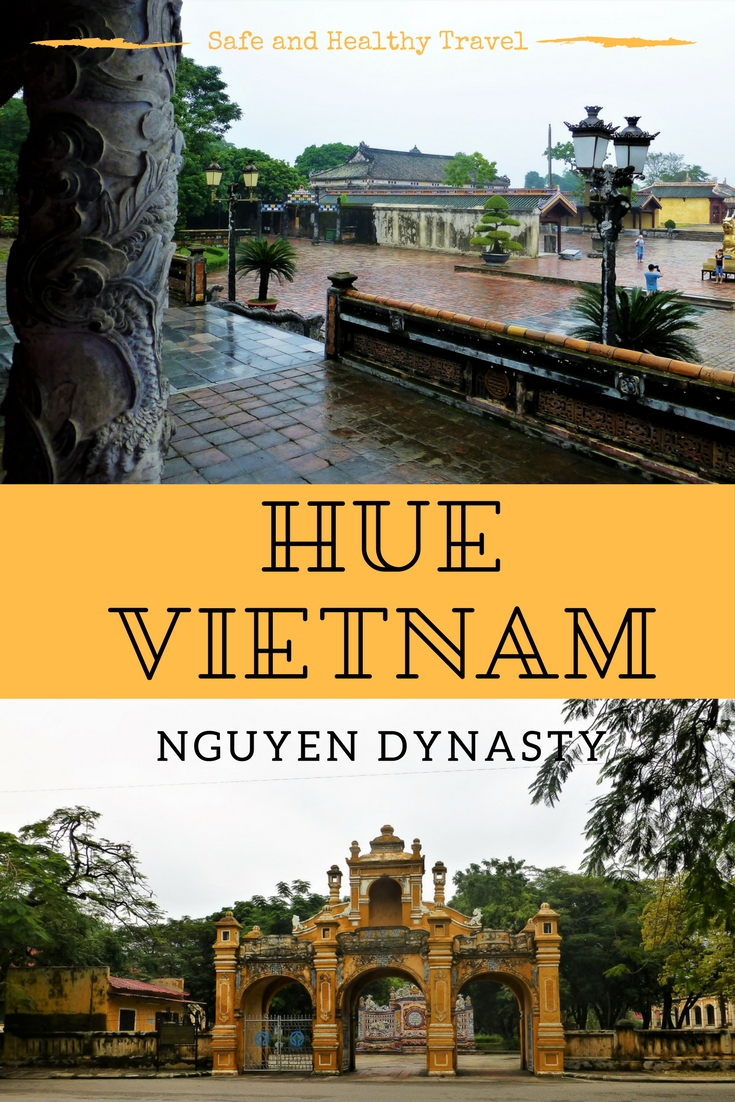During your trip through Vietnam, make sure to visit the imperial city of Hue. Marvel at the many palaces and beautiful gardens created in times long past. It offers a fascinating glimpse into life during the Nguyen Dynasty.
The City of Hue
Hue is located approximately 700 kilometers south of Hanoi and was the capital of the Nguyen Dynasty between 1802 and 1945. The city is the capital of Thừa Thiên Huế province and is renowned for its rich history. The citadel of Hue is listed as a UNESCO World Heritage Site.
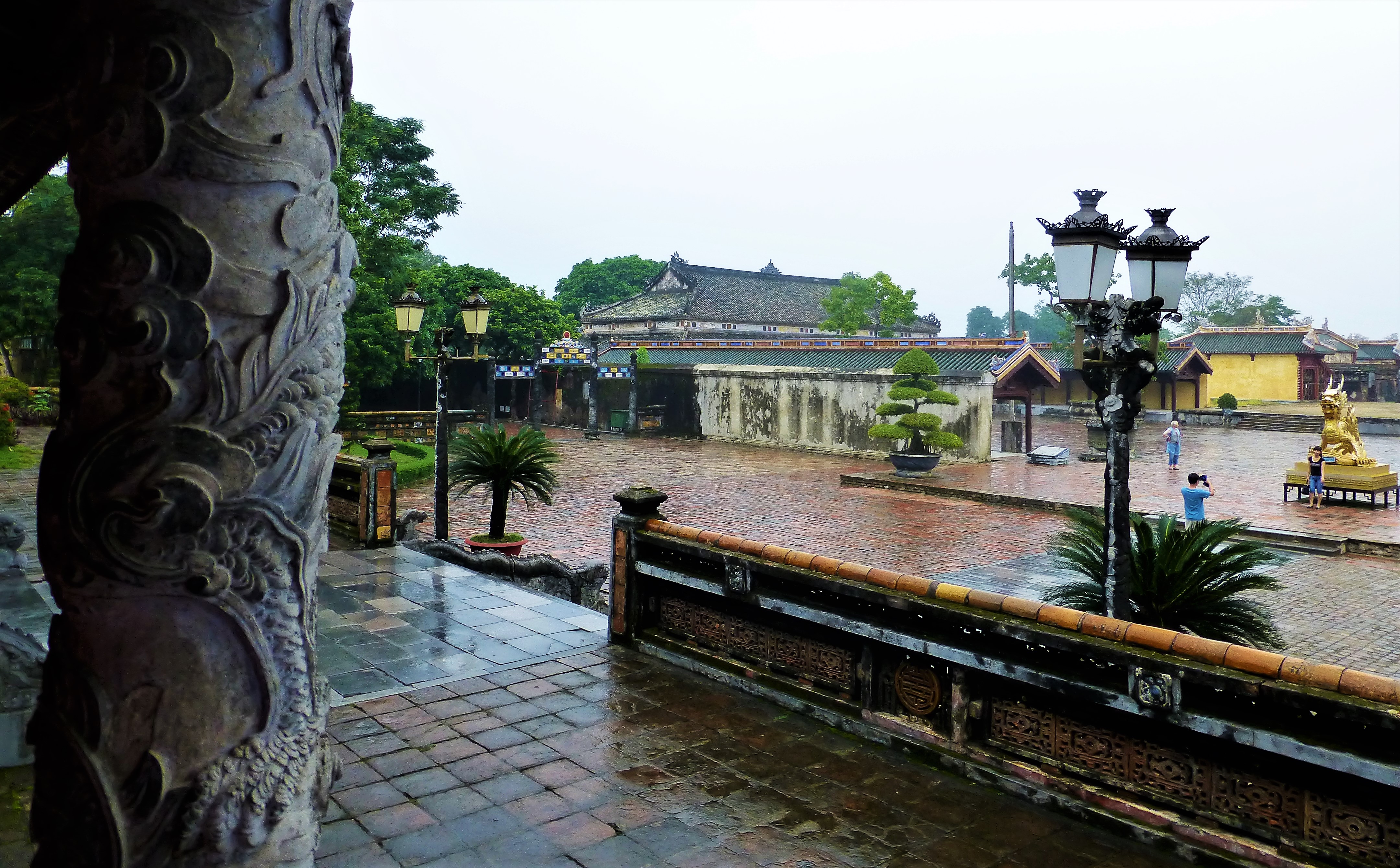
My Experience in Hue
Hue was my third stop during my Vietnam trip in 2012, after Ha Long Bay and Hanoi. Although it was rainy during my visit, I experienced it as wonderful days. The temperature was pleasant and despite the weather, I could fully enjoy the splendor and grandeur of this once imperial city.
The Citadel of Hue
On my first day, I walked to the citadel. I walked completely around the wall to get an idea of its enormous size. Within the walls lies the Imperial City, which you definitely must visit.
The Architecture
The Imperial City is walled (2 km by 2 km) and protected by a moat. The water in the moats comes from the Perfume River and is channeled in through a number of locks. What an ingenious system!
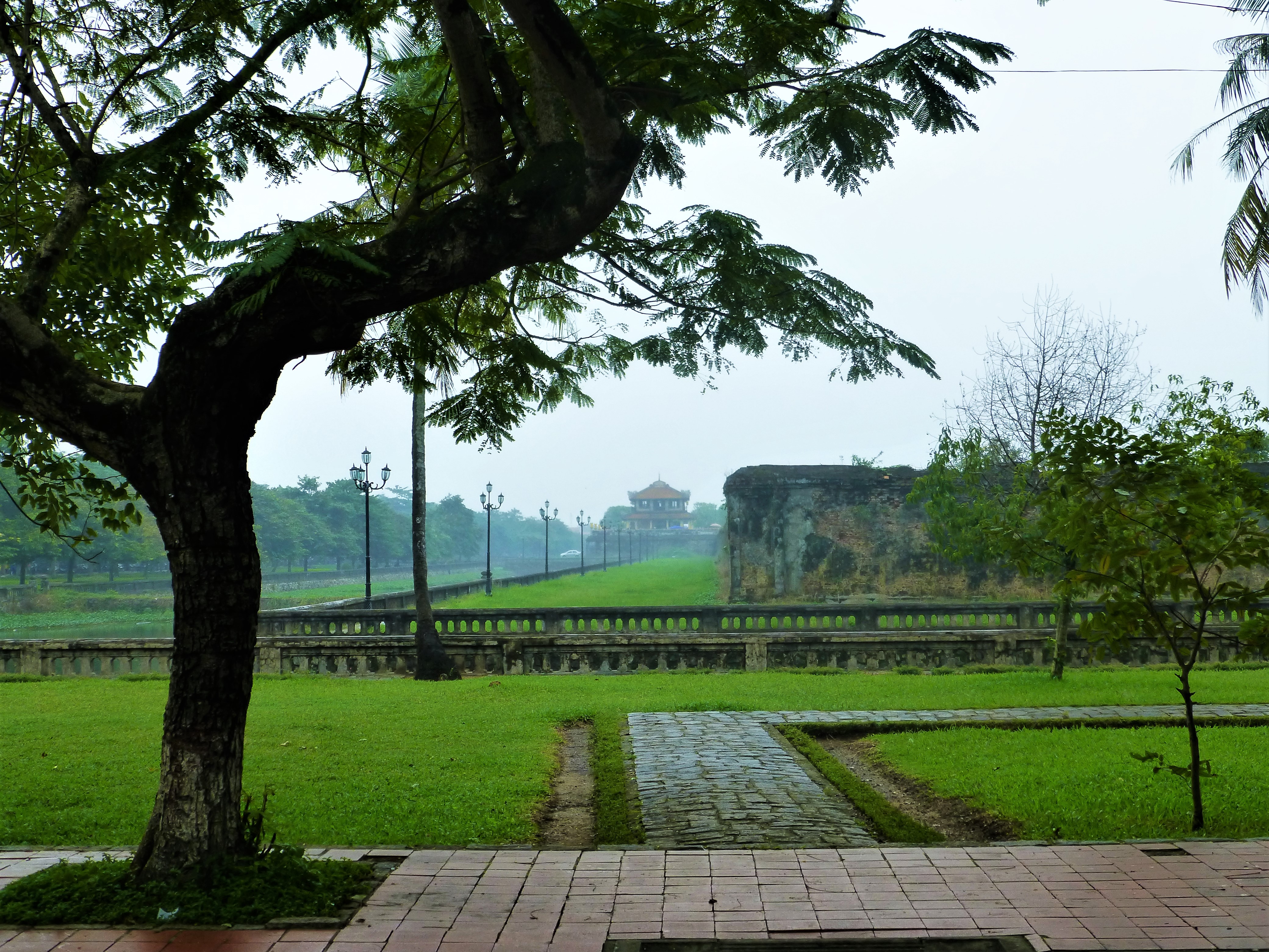
The imperial city is surrounded by a 2.5-kilometer-long wall with four main gates:
- Hoa Binh (Gate of Peace) – northern
- Hien Nhan (Gate of Humanity) – eastern
- Chuong Duc (Gate of Virtue) – western
- Ngo Mon (Gate of Noon) – southern
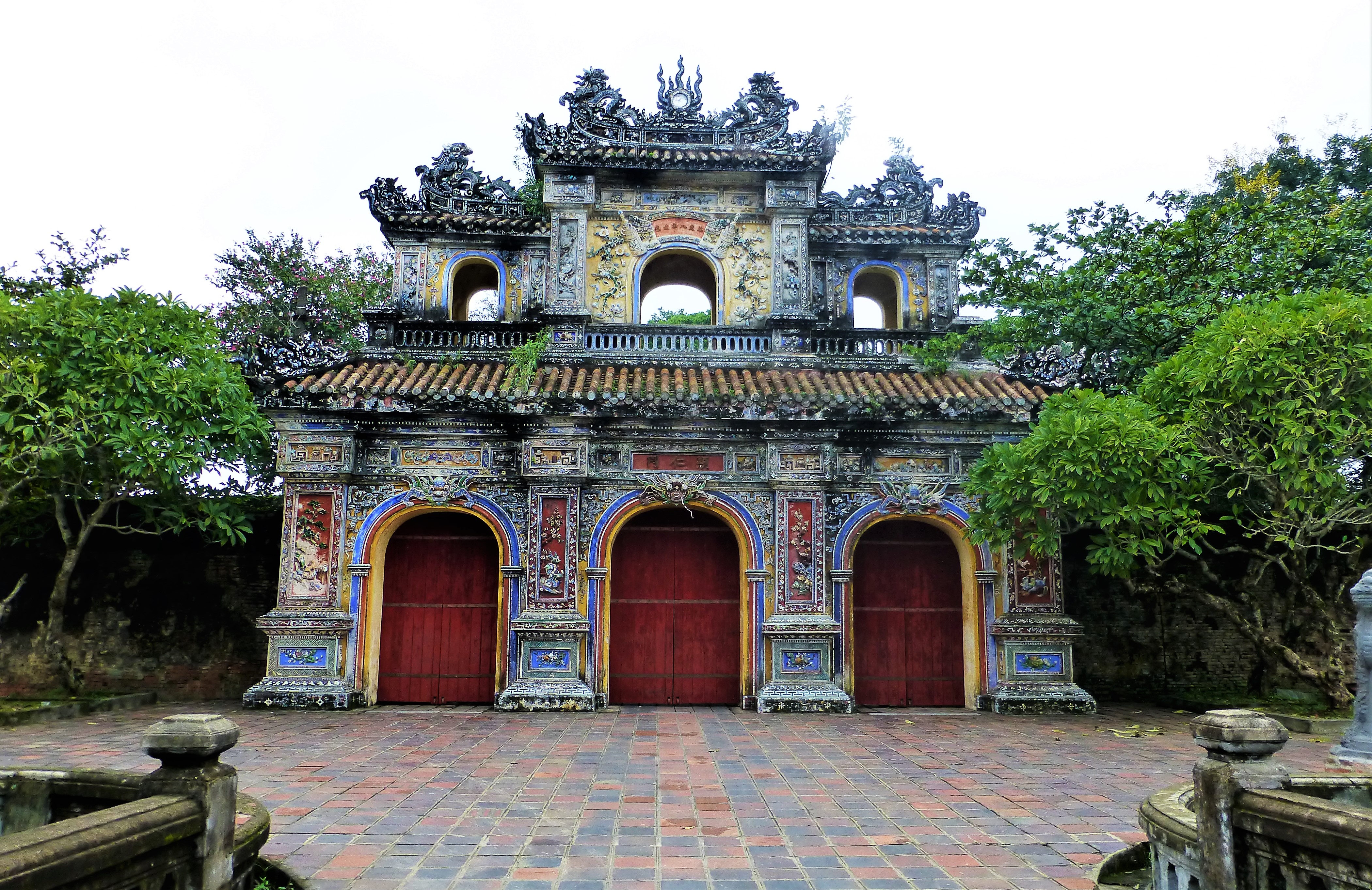
My tip: Walk around the wall to admire all the gates from both sides. Along the way, you’ll walk through the local streets and see the daily life of Hue, which is an experience in itself!
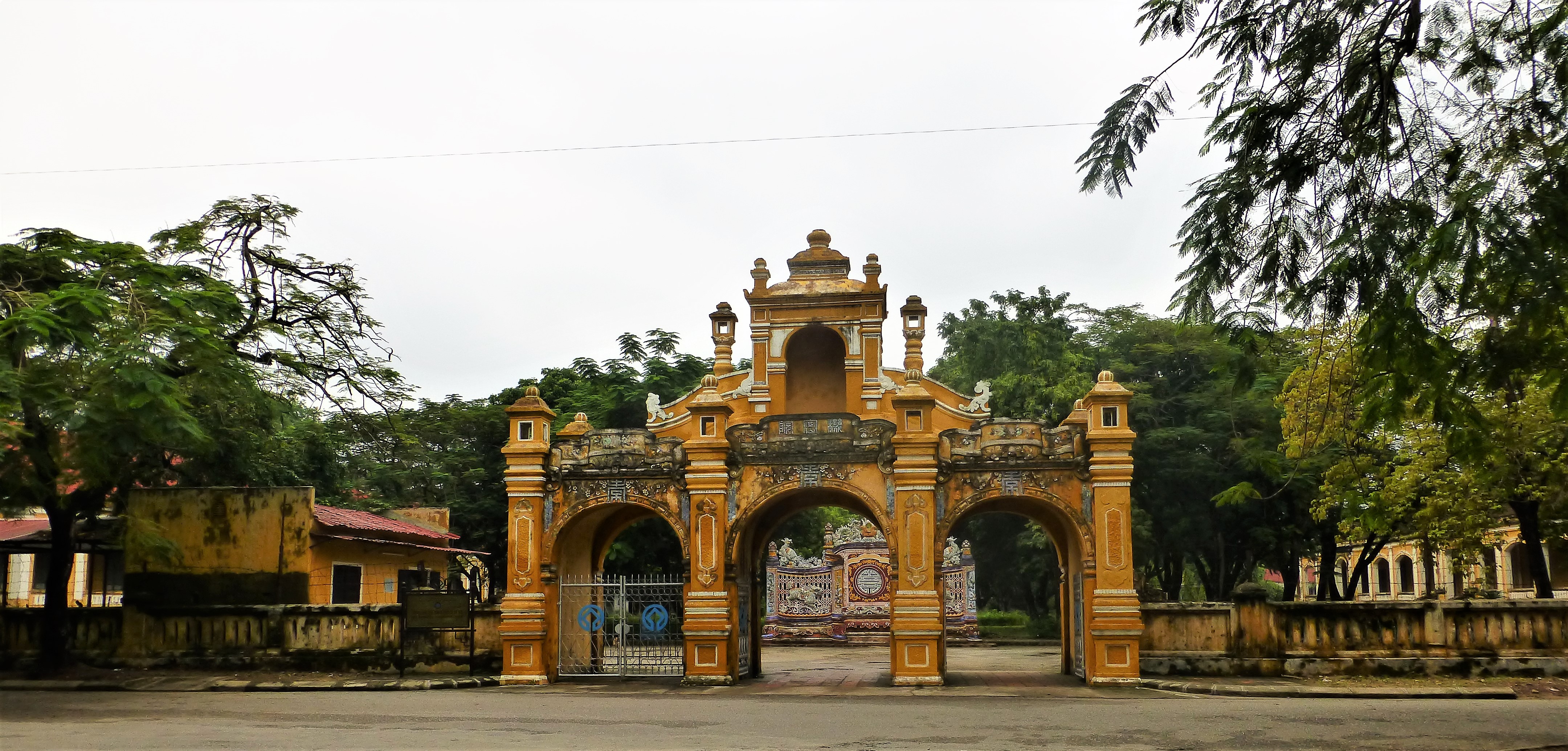
Thai Hoa Palace and the Courtyards
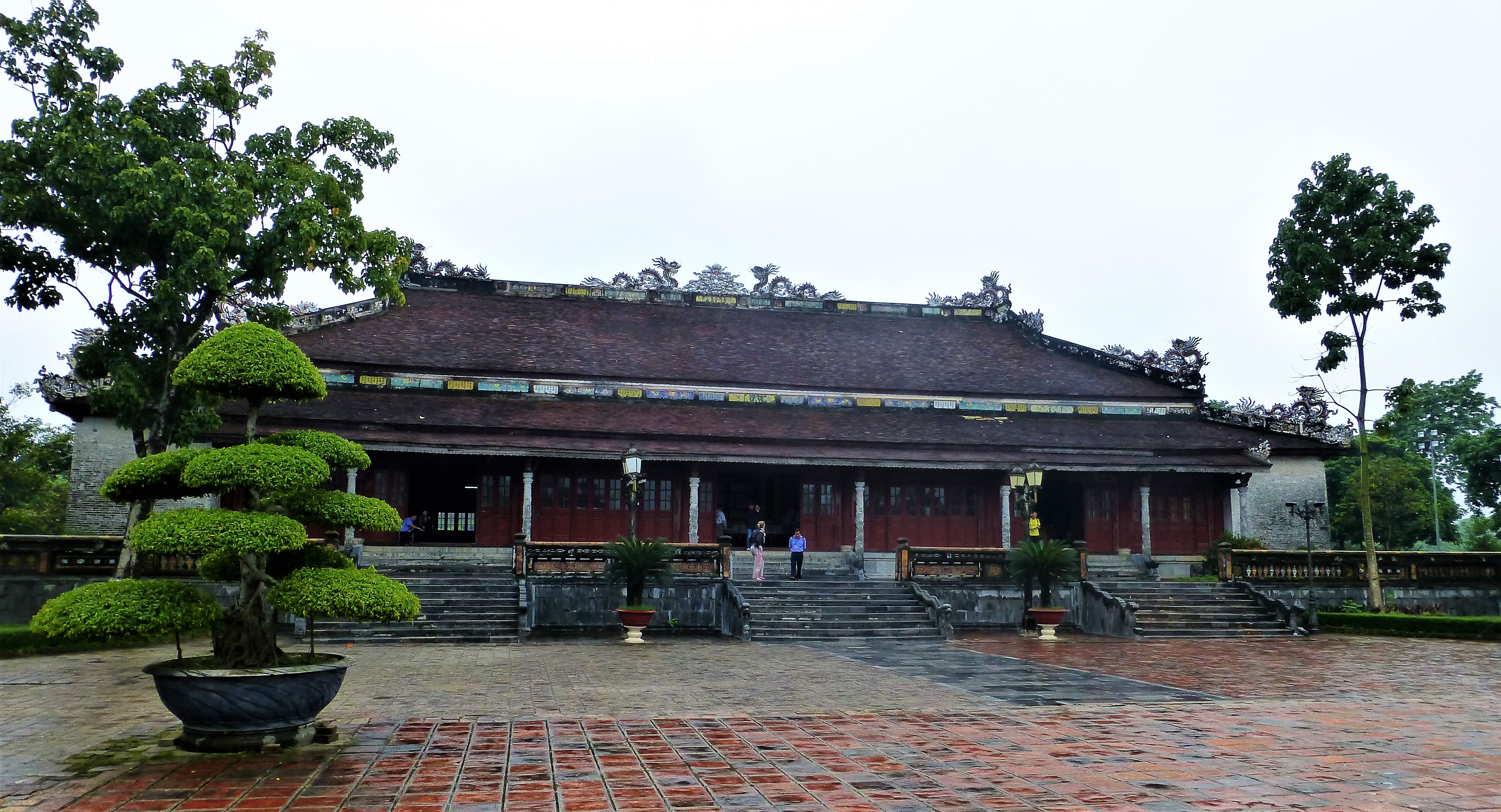
In the citadel, you’ll find many courtyards and the beautiful Thai Hoa palace. In the past, hundreds of servants would stand here in formation to celebrate festive days for the emperor. Imagine: the entire courtyard filled with beautifully dressed people in a festive mood. It must have been impressive!
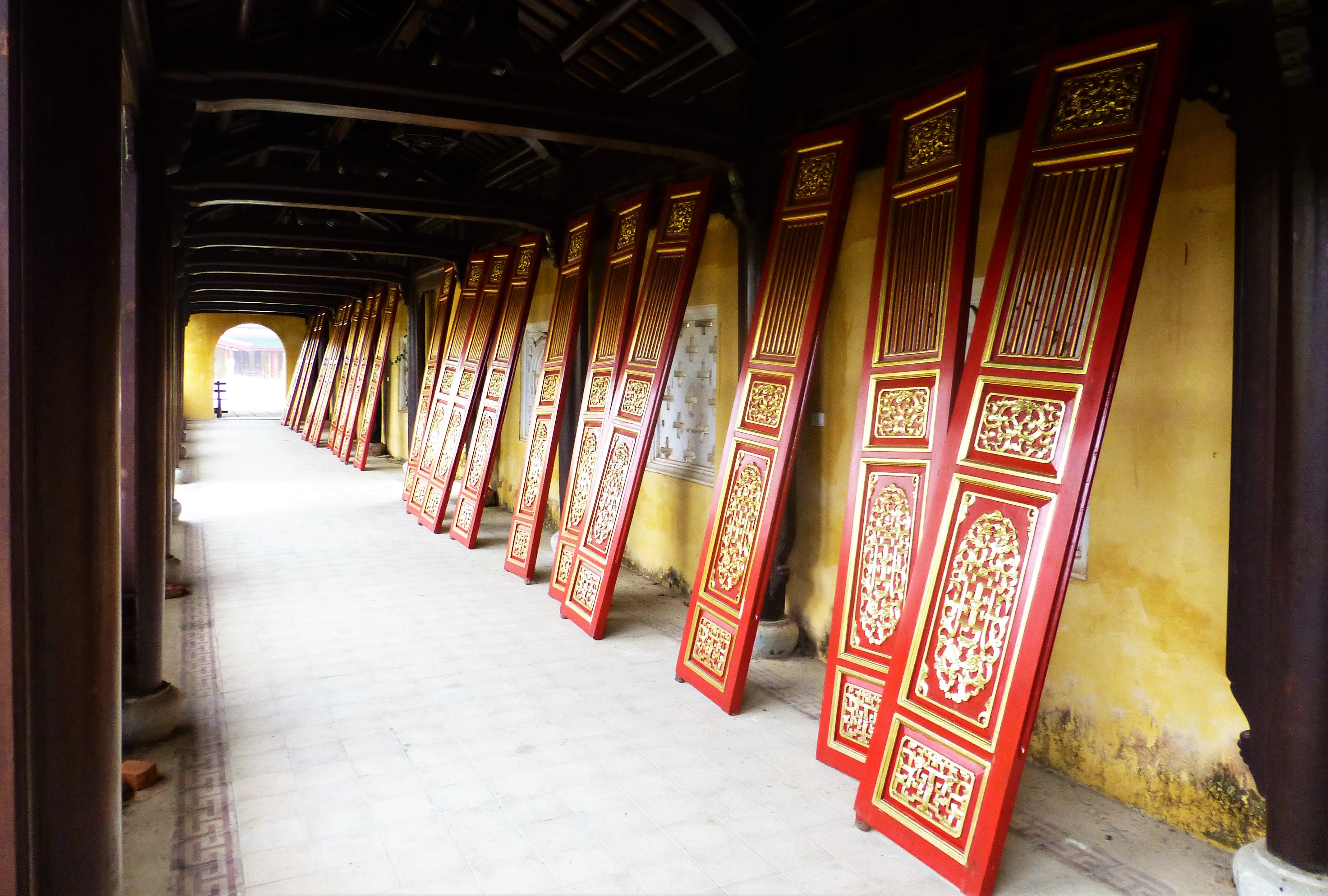
UNESCO World Heritage and Restoration
The complex is on the UNESCO World Heritage list. When I was there in 2012, they were busy with restoration work. Your entrance fee contributes to the preservation of this culture and these beautiful buildings. I’m curious how it looks now, years later!
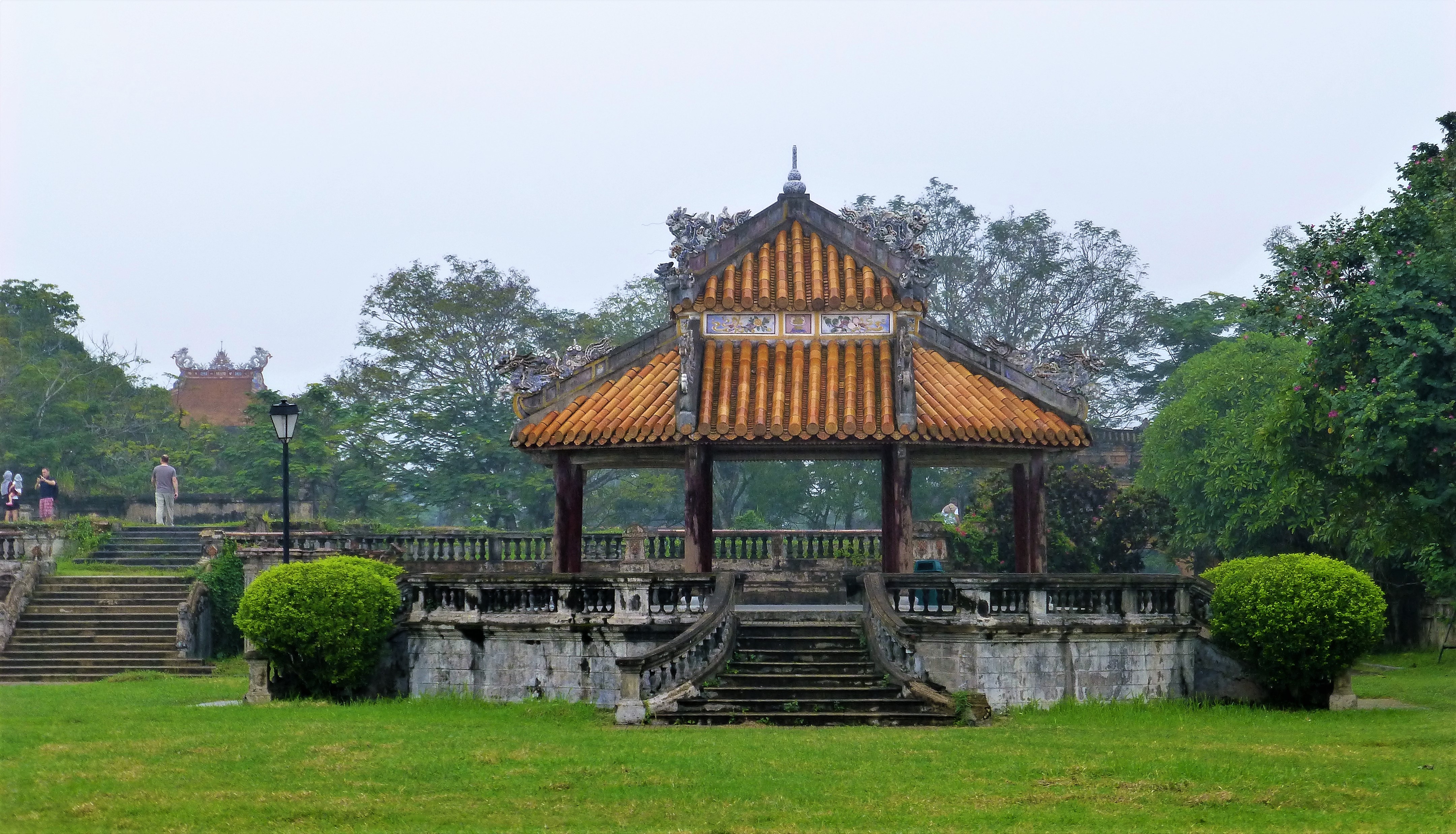
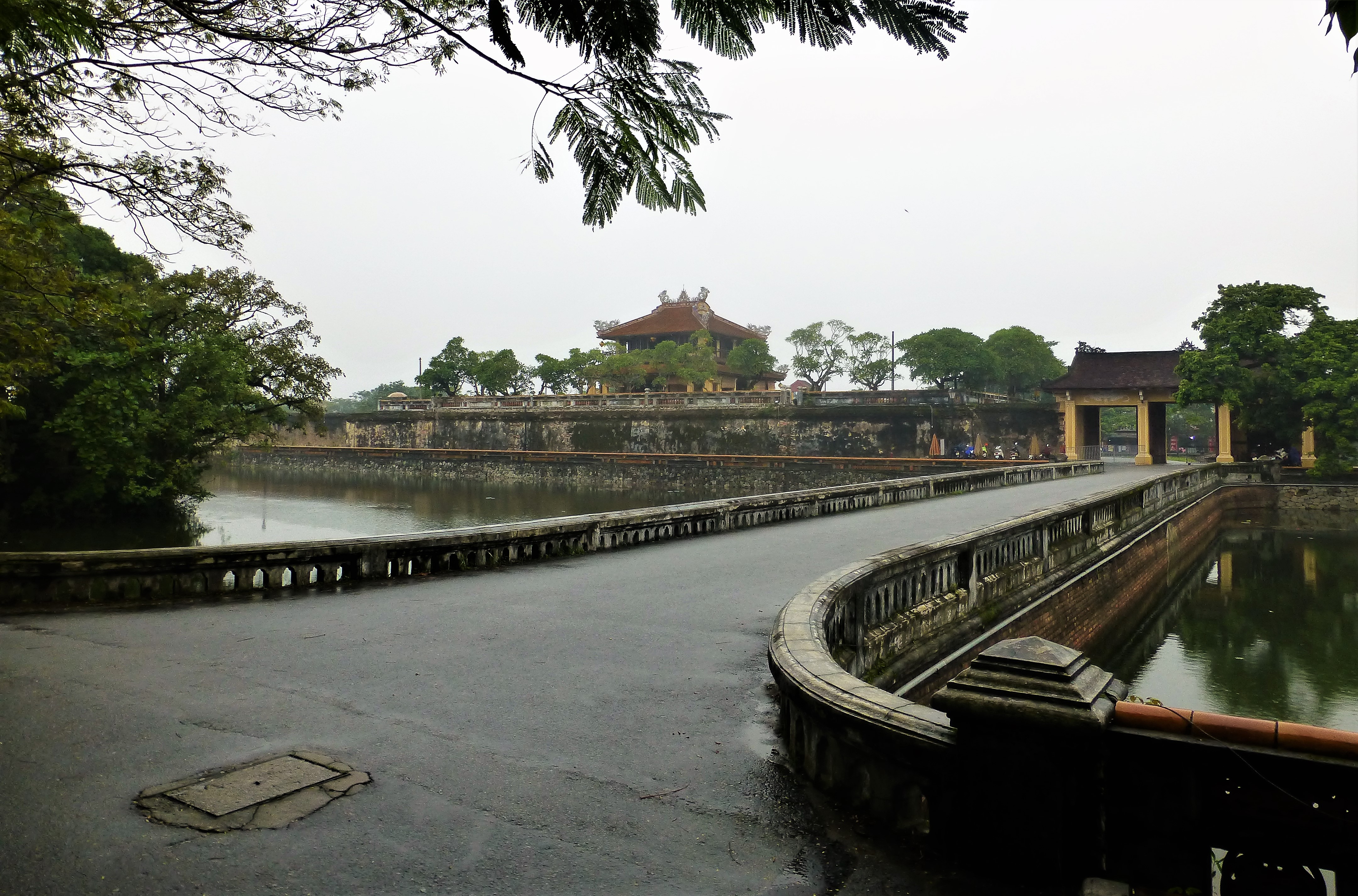
The Forbidden City
Within the citadel lies the Forbidden City. Only the emperor, his family, and of course the servants entered this sacred part. When I was there, I saw that people still lived there, presumably to keep an eye on things when the complex is closed in the evening.
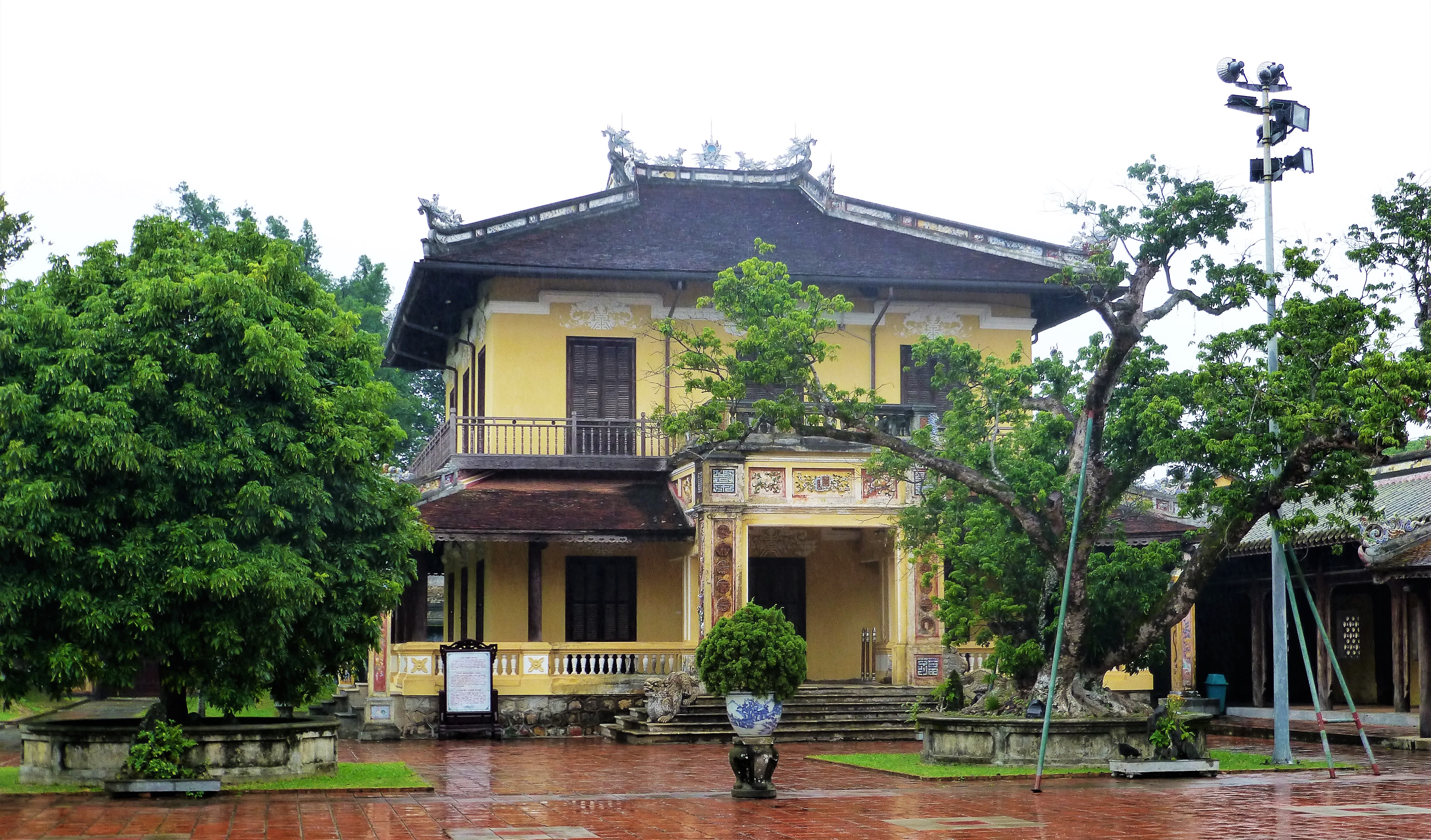
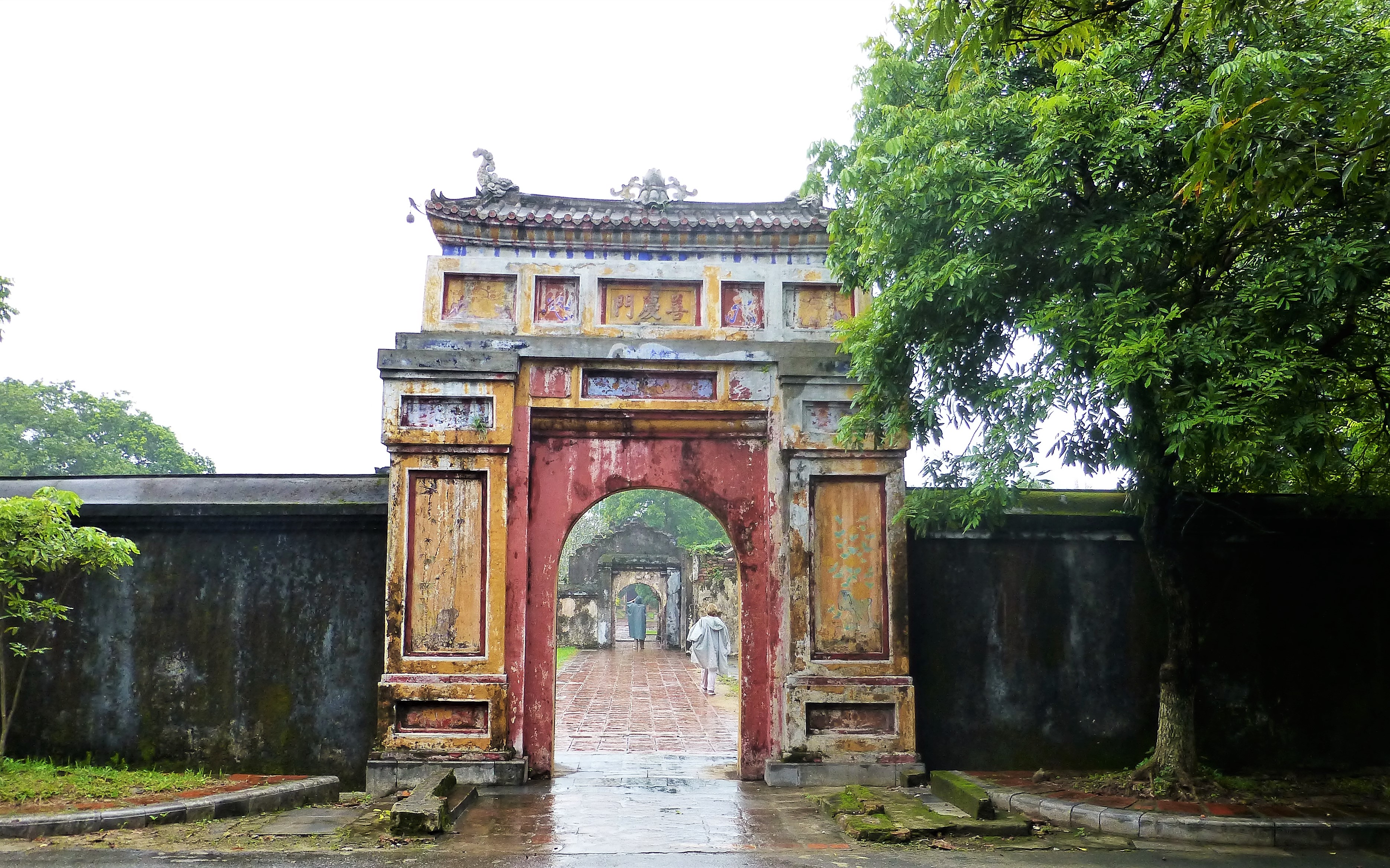
Gate, gate, gate…
What to do in Hue – Citadel of the Nguyen Dynasty
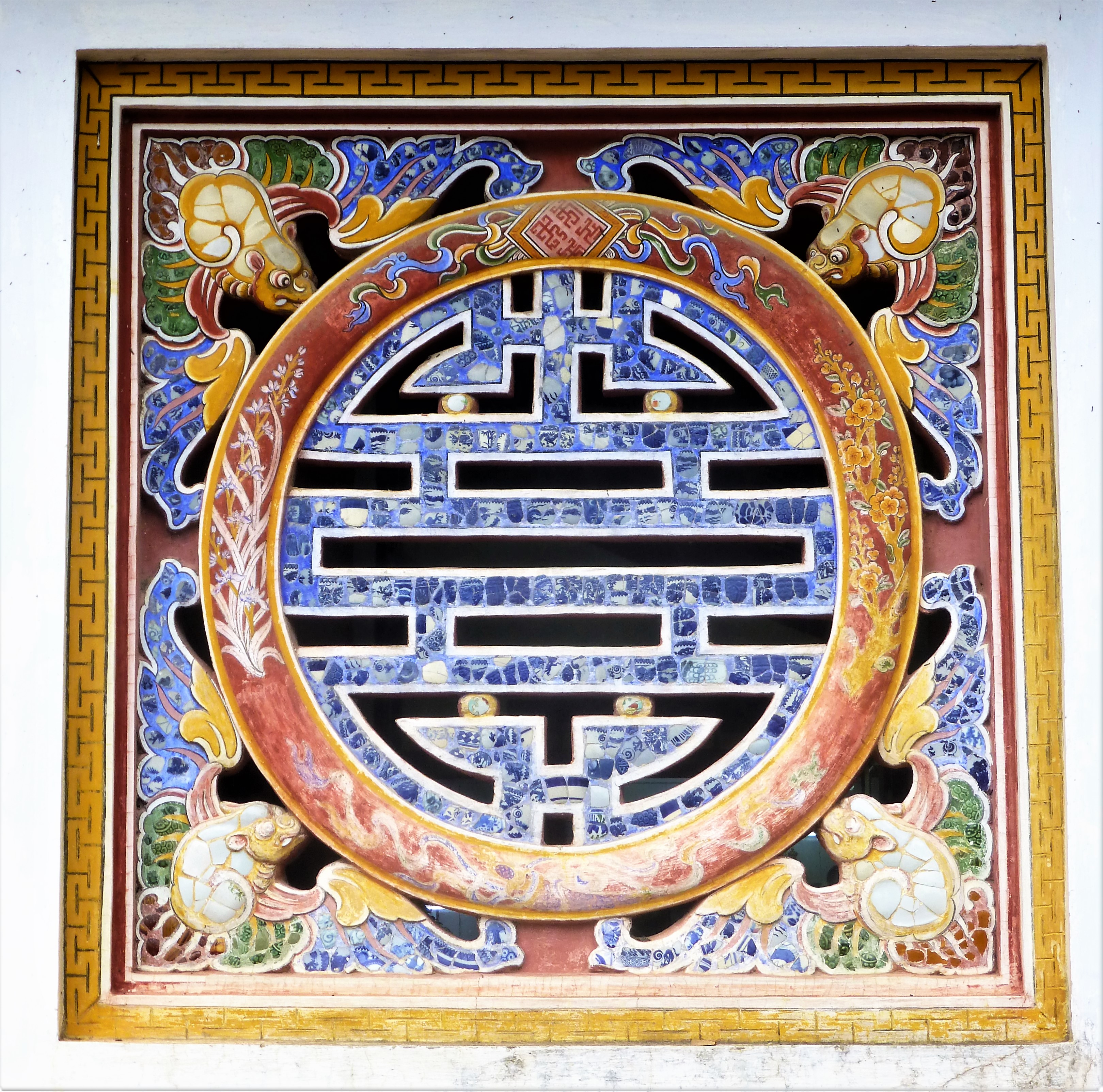
Isn’t it wonderful?
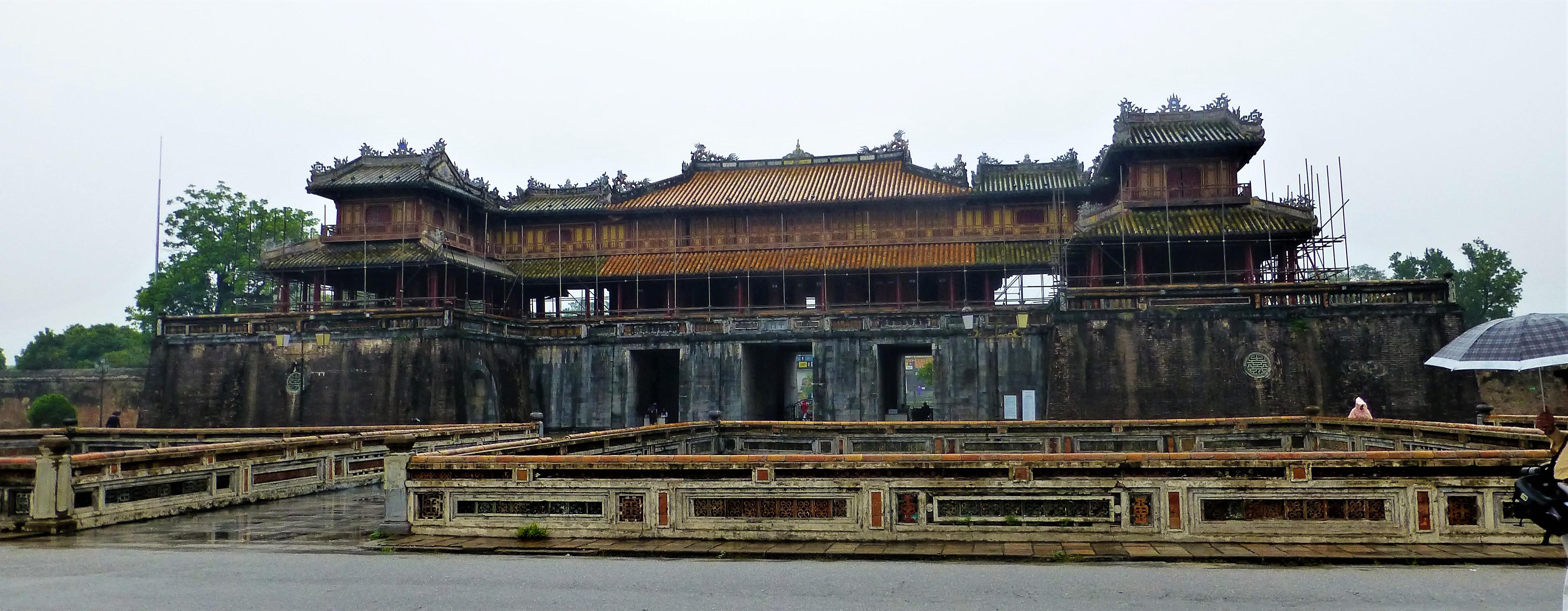
The Ngo Mon Gate (Main Entrance)
A fun detail: one of the entrances is larger than the others, specially designed for the elephants that had to pass through in the past. The other entrances were too narrow. Everyone has their own architectural challenges!
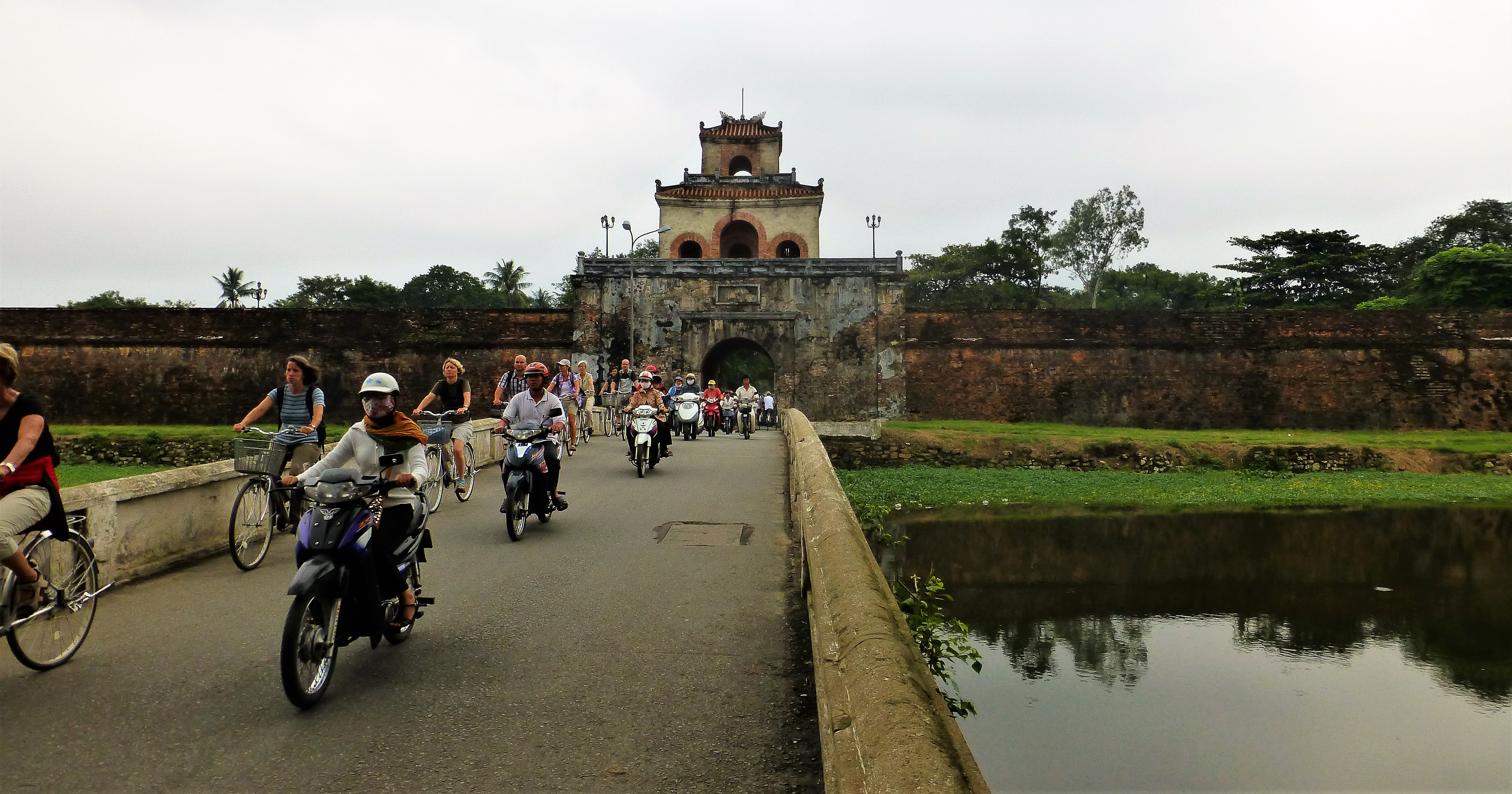
Practical Information Citadel
Entrance fee 2025: 200,000 VND
Location: Center of Hue
Time: Plan at least half a day
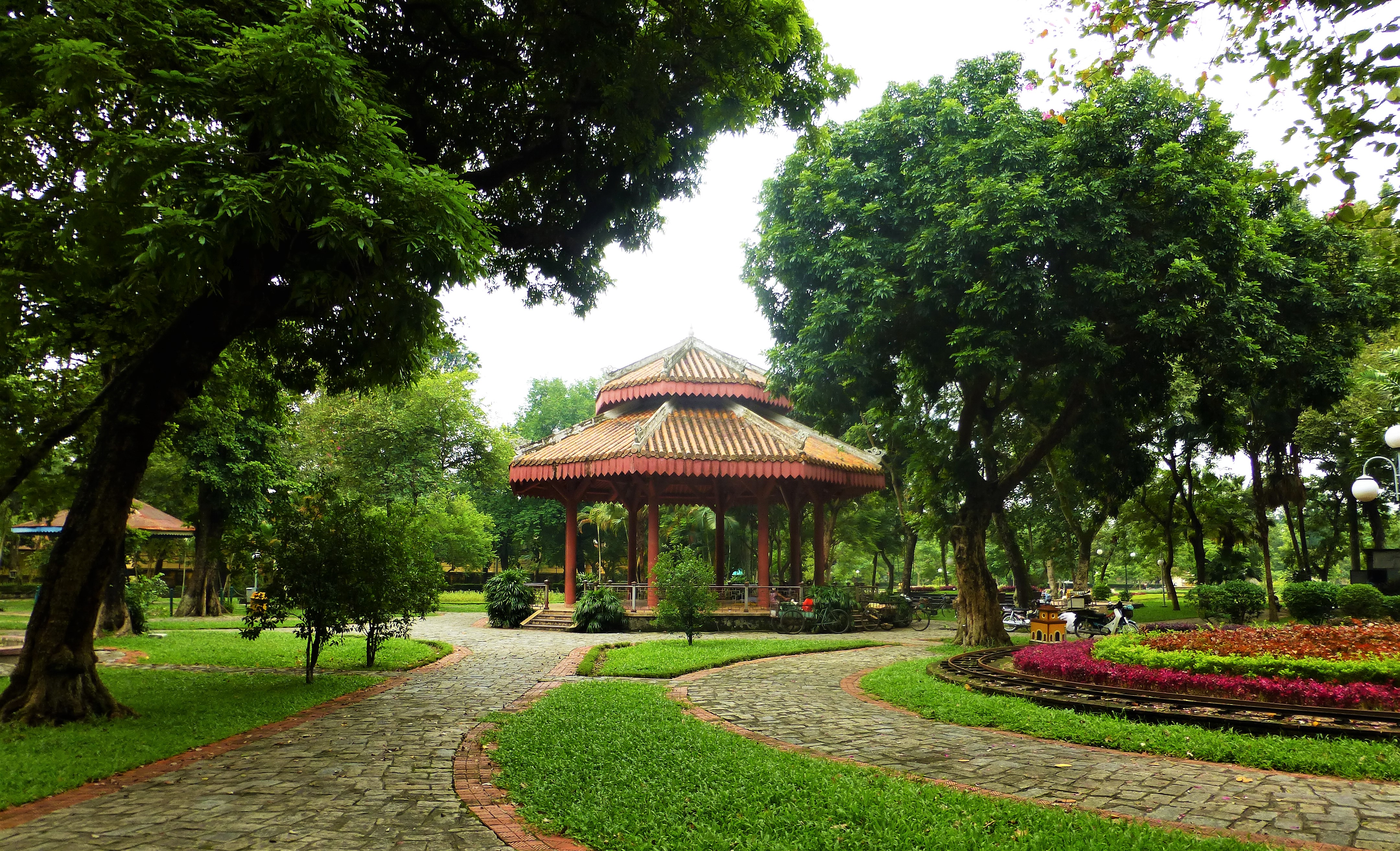
Entrance Imperial City – Hue
The entrance fee is 200,000 VND in 2025.
When I was there, in 2012, they were busy restoring. I could see everywhere that they were quite busy with it, although I didn’t actually see anyone working. It goes the Asian way, so to speak. Of course, I am curious how it looks now that we are so many years further.
GPS Imperial City Hue
Outside the Citadel – The Street Life
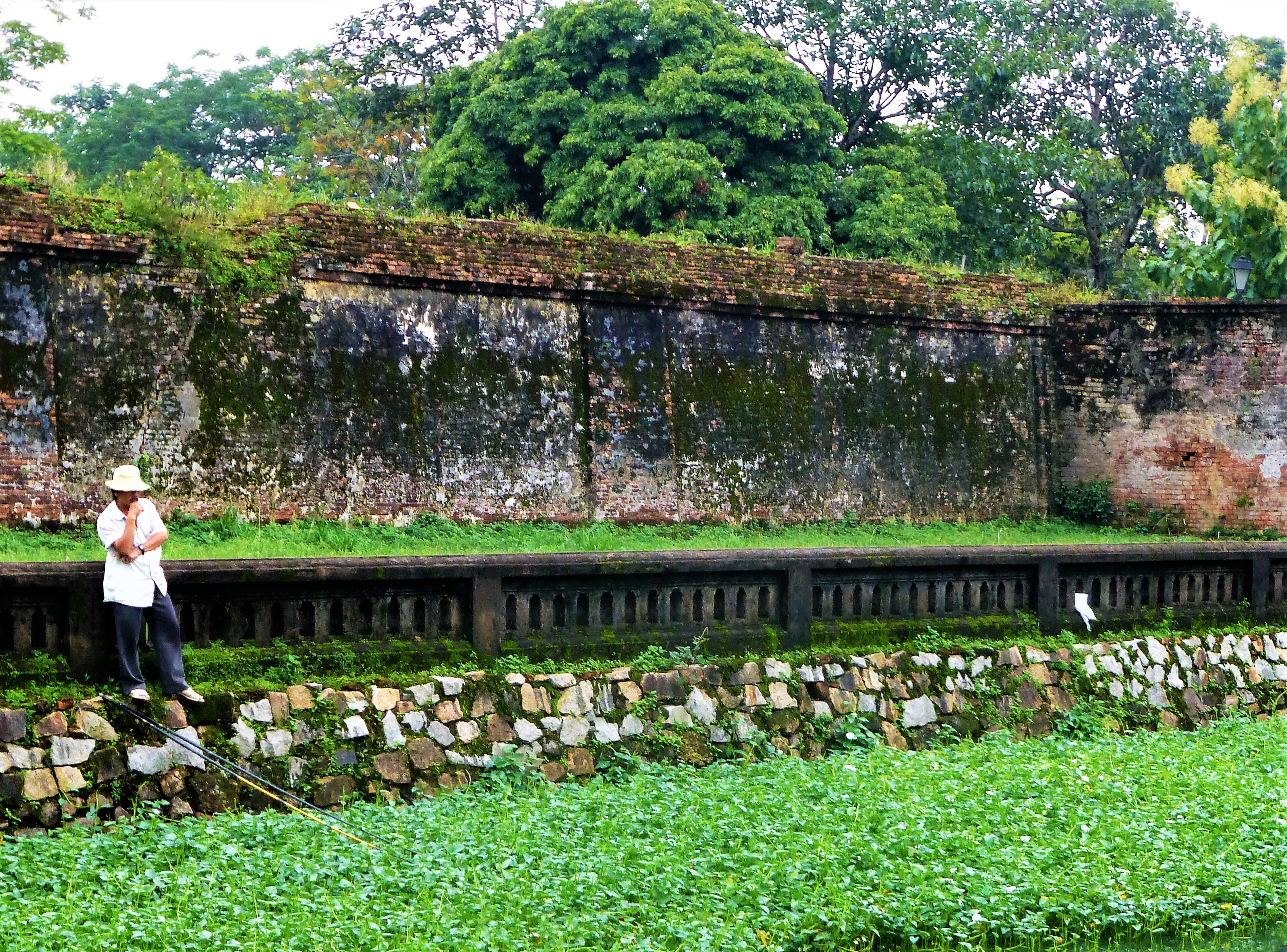
Outside the citadel, the traffic is an attraction in itself! All the scooters with drivers protecting their arms and faces from the sun, and among them tourists on bicycles with bare arms to catch some color. I love watching these street scenes!
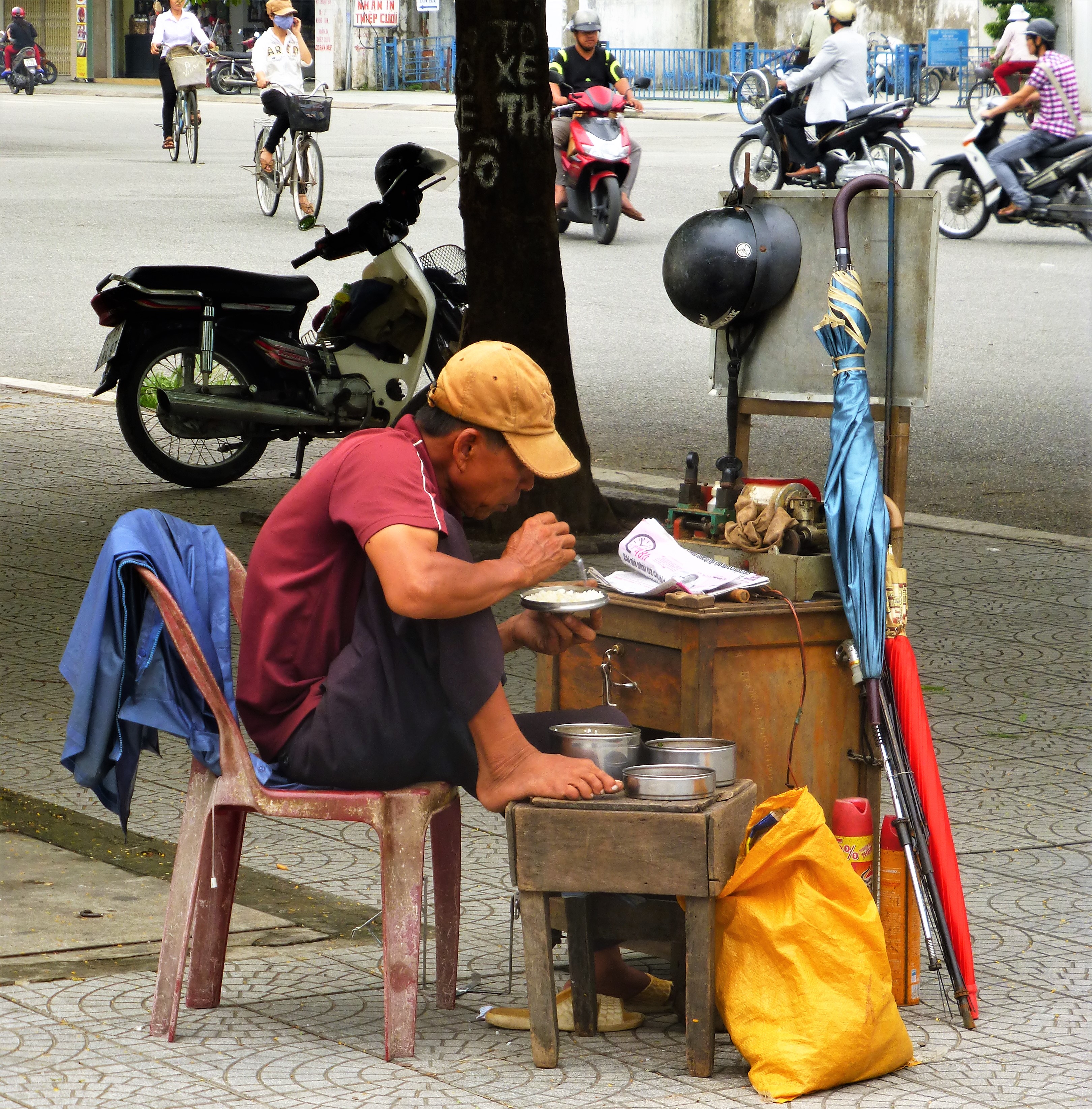
Be sure to take time for lunch at one of the local restaurants. The street scenes in Asia remain fascinating.
What to Do Around Hue
If you’re in Hue, you should definitely explore the surrounding area for a day! I booked a trip to visit the famous mausoleums and to admire the Thien Mu Pagoda. The weather was better that day and I thoroughly enjoyed a day outside the city.
Transportation Tips
The mausoleums are located about 6 kilometers outside the city. If you have a day, I recommend doing this by bicycle.
My experience: During my first trip, I was still in a car with a group of tourists. Now I would definitely go by bicycle, or even on foot. What an adventure that would be!
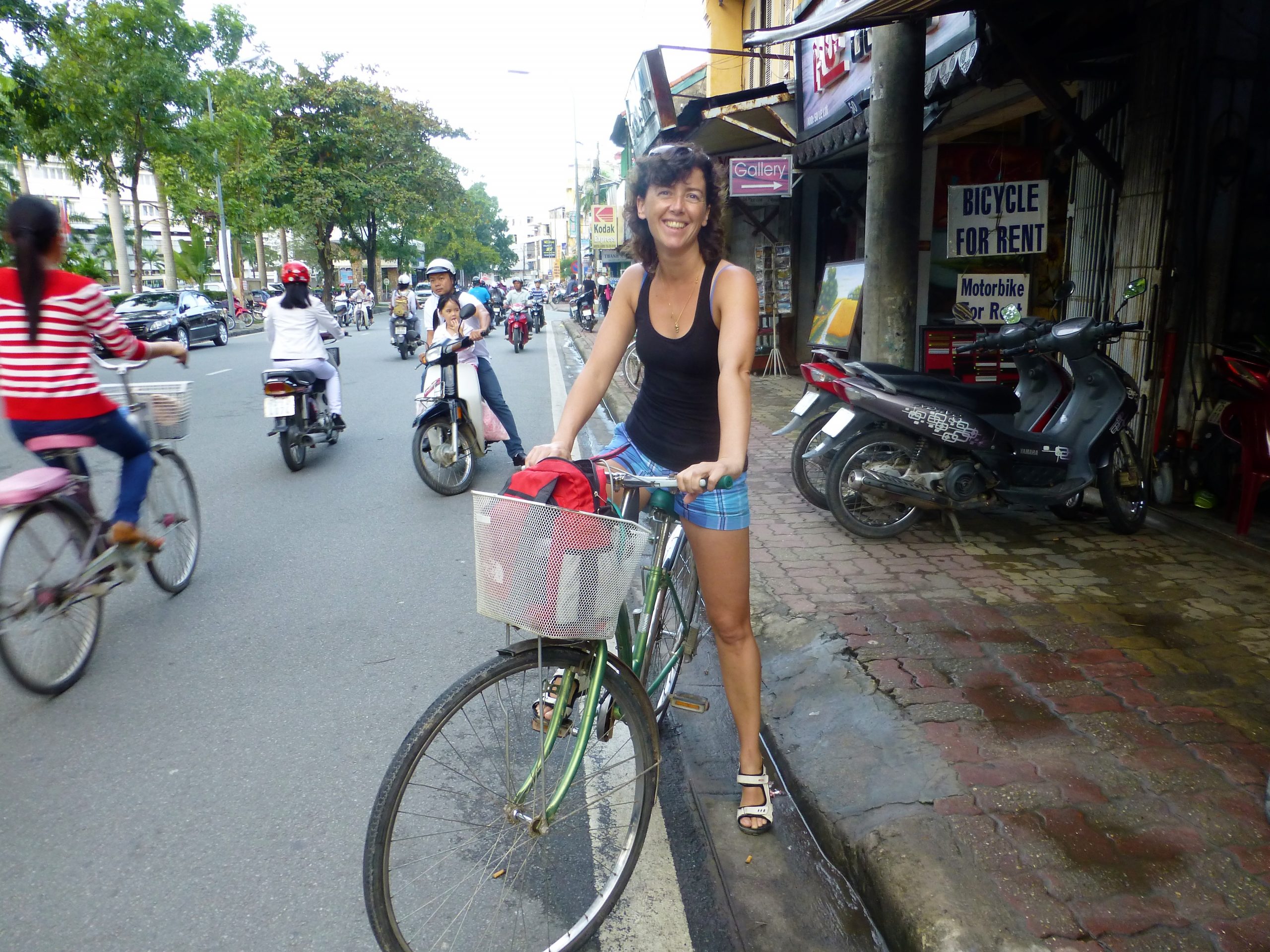
Extra tip: I rented a bicycle for an afternoon to explore the city. It’s a fun challenge to navigate through the busy Vietnamese traffic!
Khai Dinh Mausoleum
Emperor Khai Dinh (1888-1925) ruled from 1916 until his death. Construction of his mausoleum began in 1920 and was only completed in 1931.
Why Visit?
The area around the mausoleum is spectacular. The various buildings make it wonderful to walk through this complex and admire its splendor. The gardens offer beautiful vistas and the tranquility of the countryside is a welcome change after the bustle of the city.
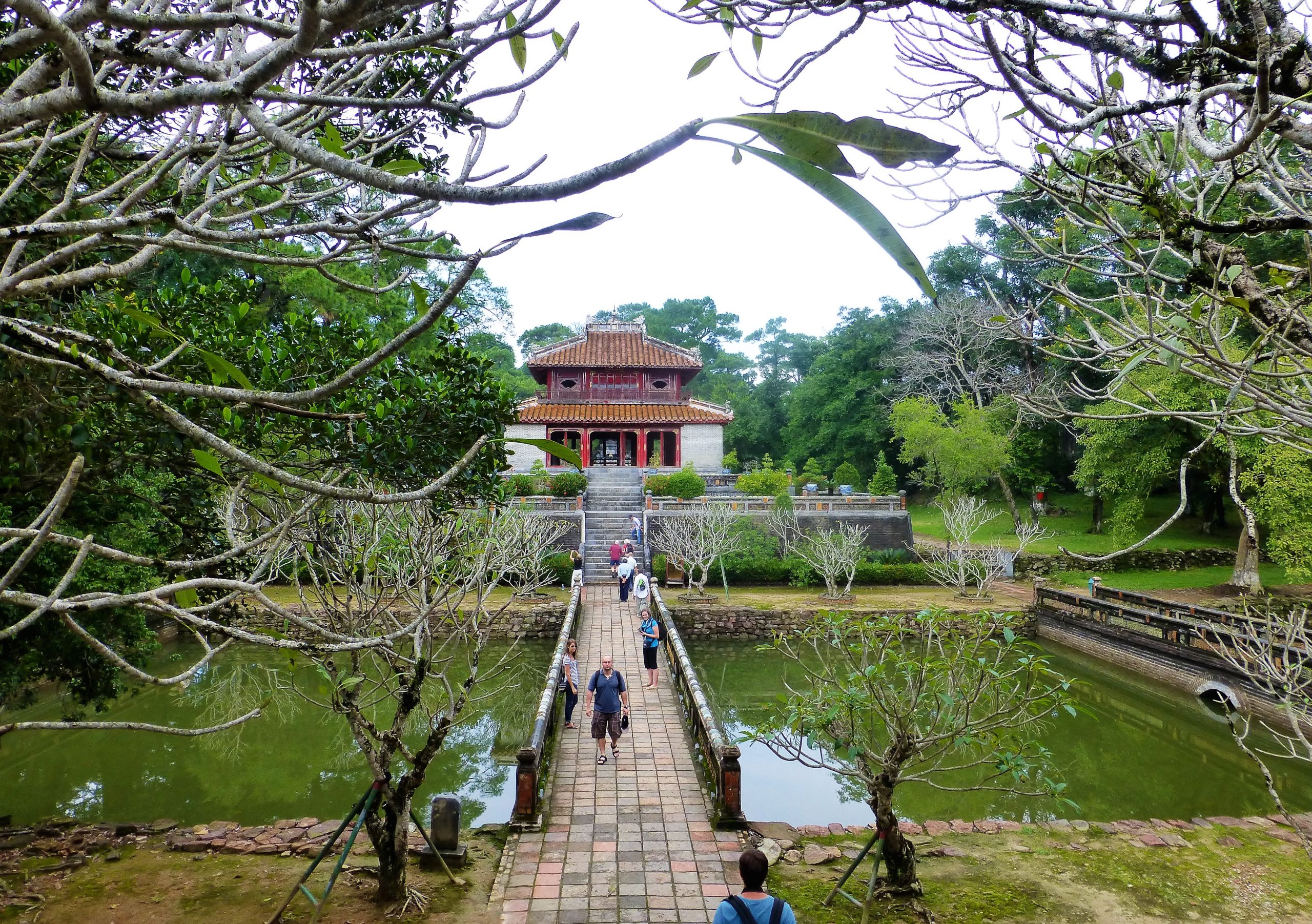
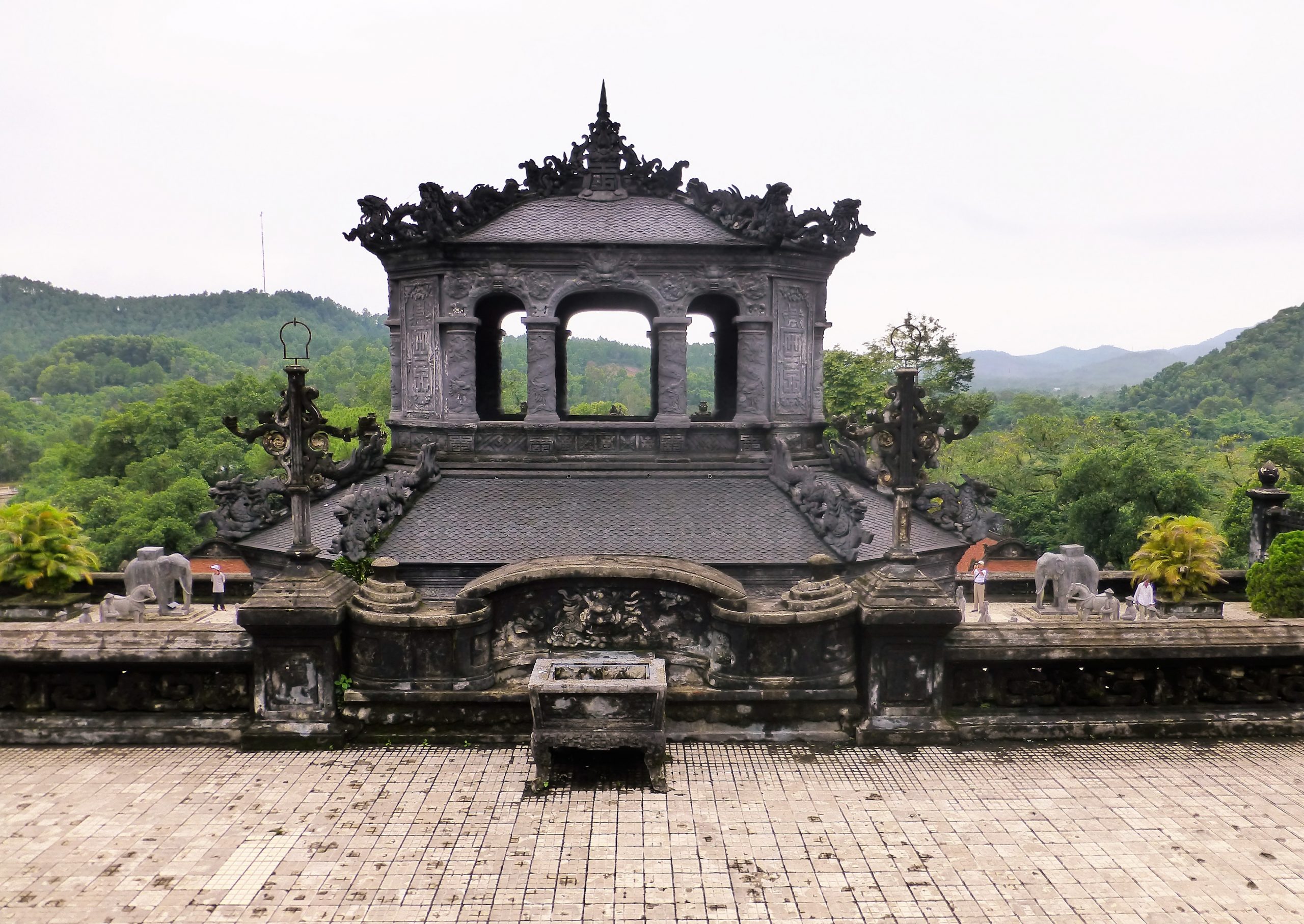
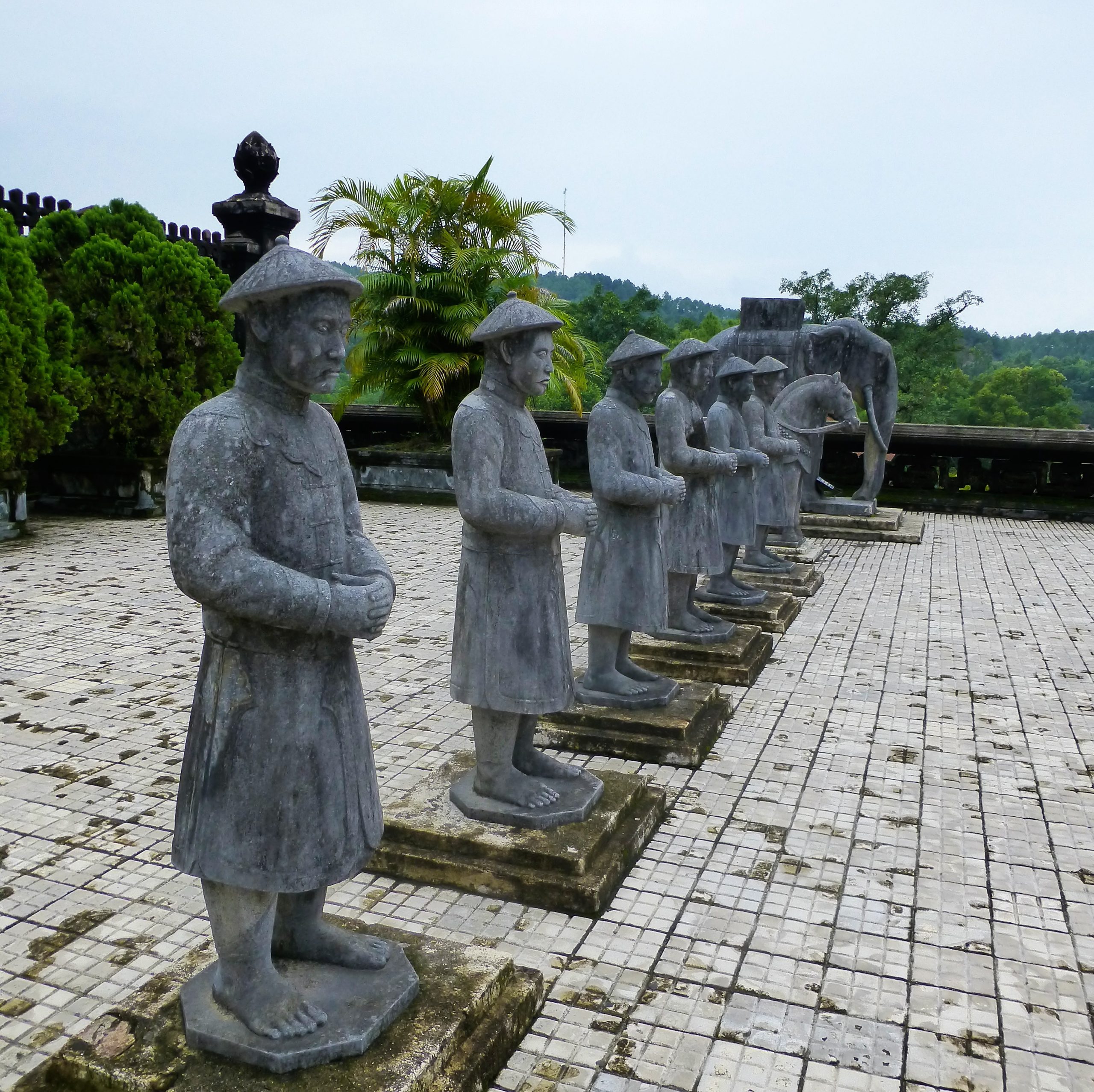
GPS Khai Dinh tomb
Tu Duc Mausoleum
This is an extensive complex where you should definitely take a walk.
History
Tu Duc (1829-1883) ruled the dynasty for 35 years and is thus the longest-reigning emperor. He was emperor from 1848 until his death.
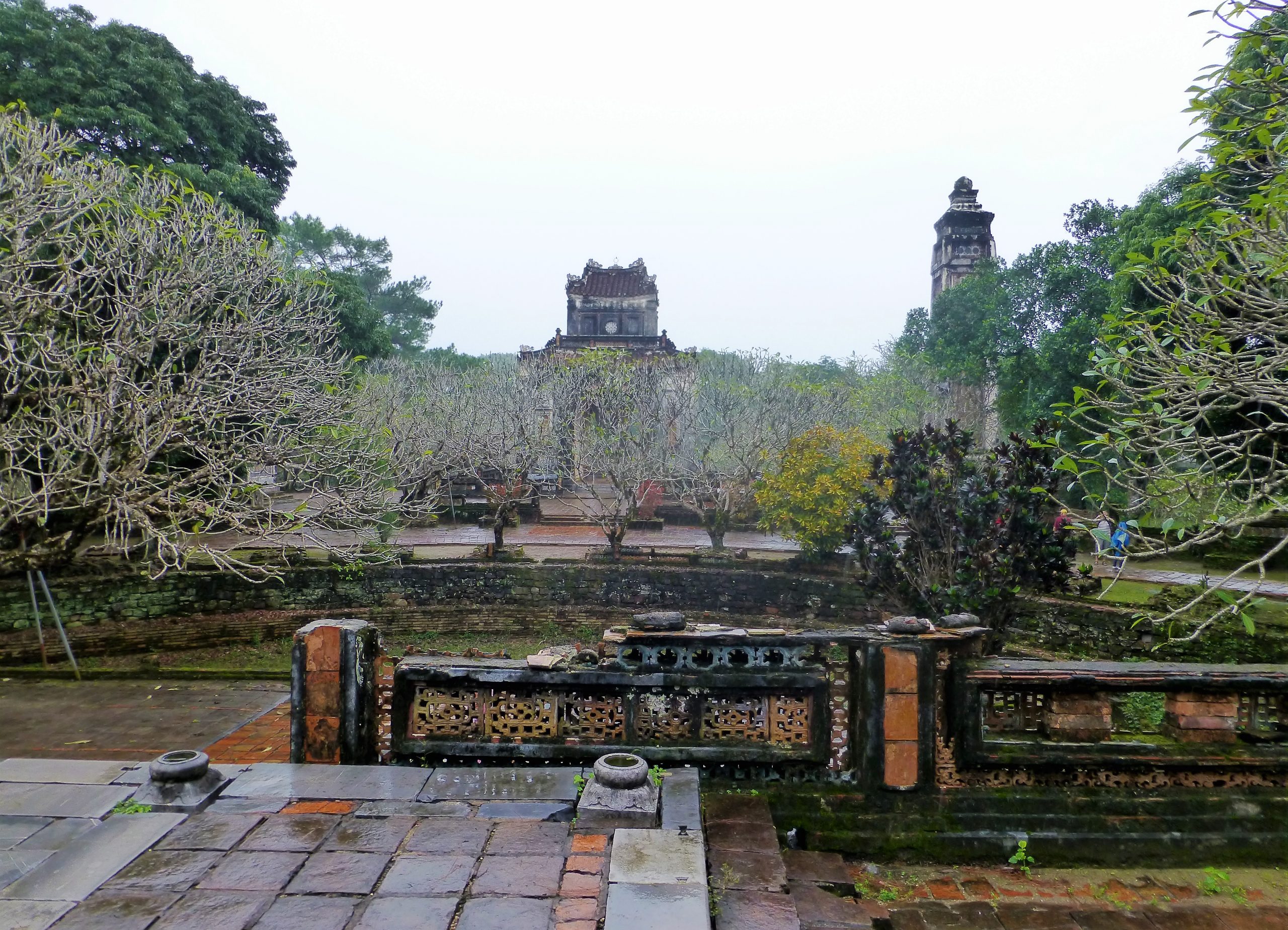
The Complex
His mausoleum is surrounded by no fewer than 50 buildings and a 1,500-meter-long wall. The complex was built between 1864 and 1867 and reflects the poetic nature of the emperor.
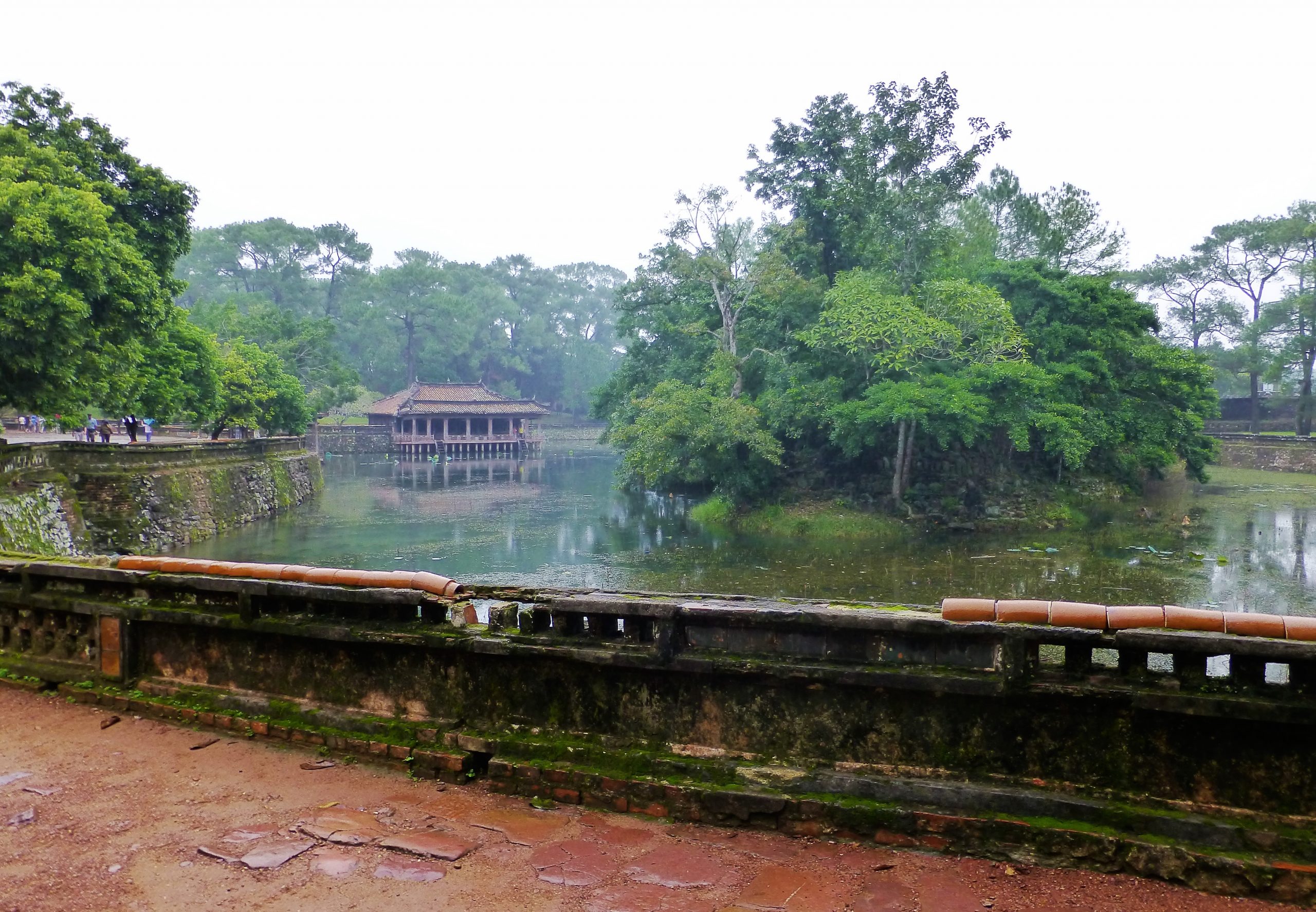
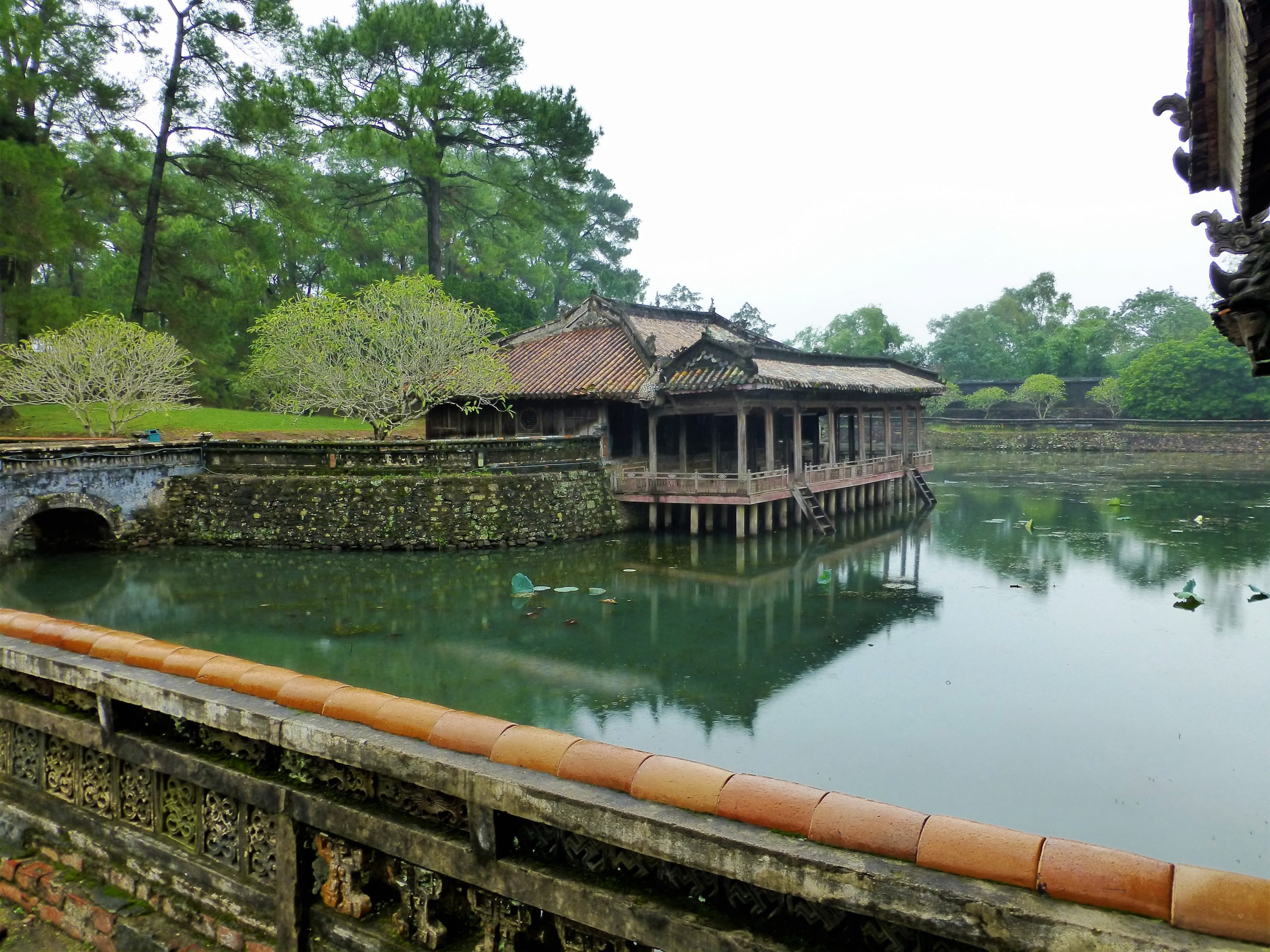
GPS Tu Duc Mausoleum
Thien Mu Pagoda
The Thien Mu Pagoda is the oldest pagoda in Hue. Lord Nguyen Hoan ordered its construction in 1601. The pagoda is located outside the city, beautifully situated along the Huong River (Perfume River).
Also called the soul of Hue. The bell hanging in the pagoda sounds across the river and echoes into the city, to the doors of the citadel and further across the sea. That’s why the pagoda is also called “the soul of Hue.”
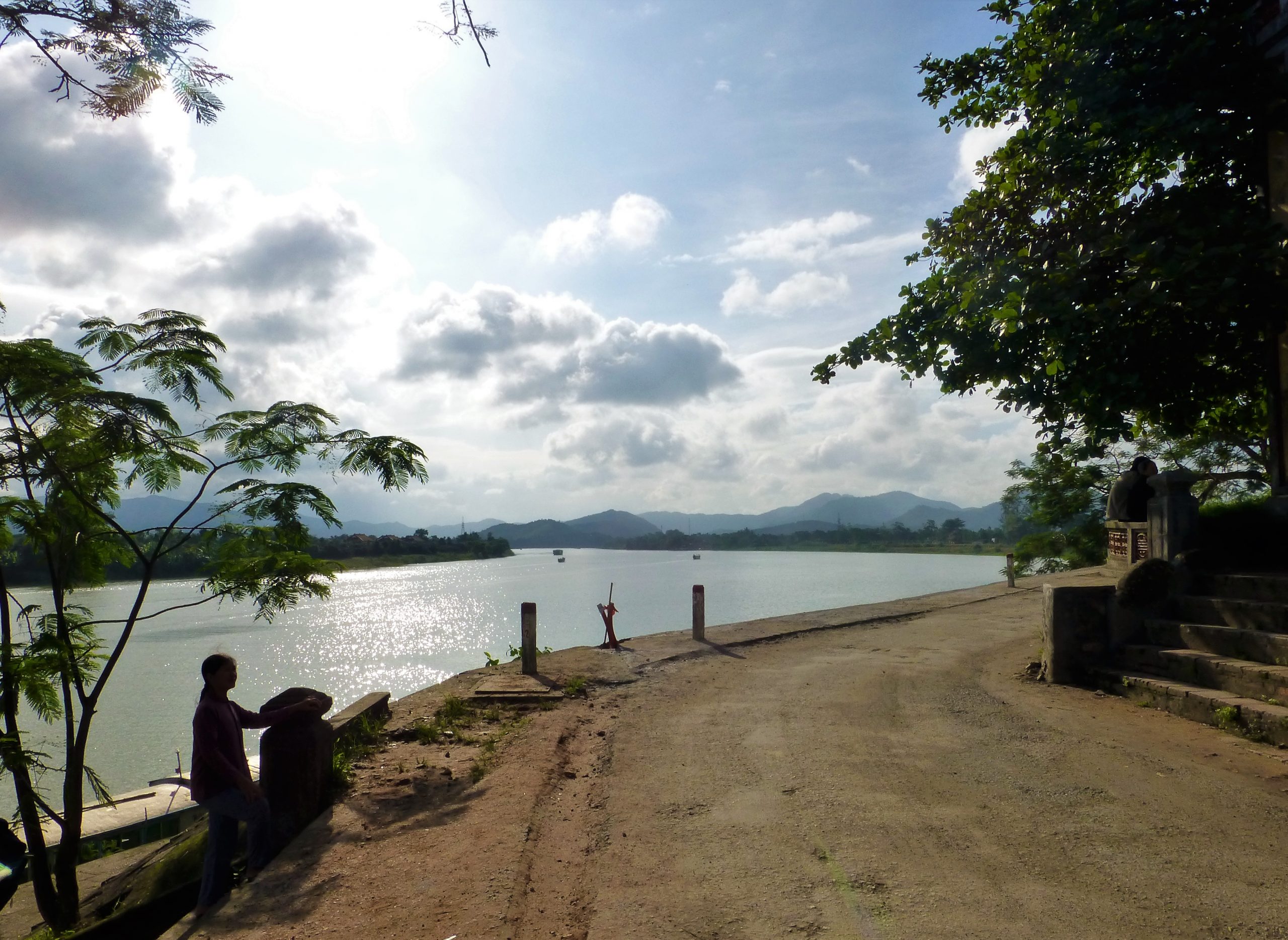
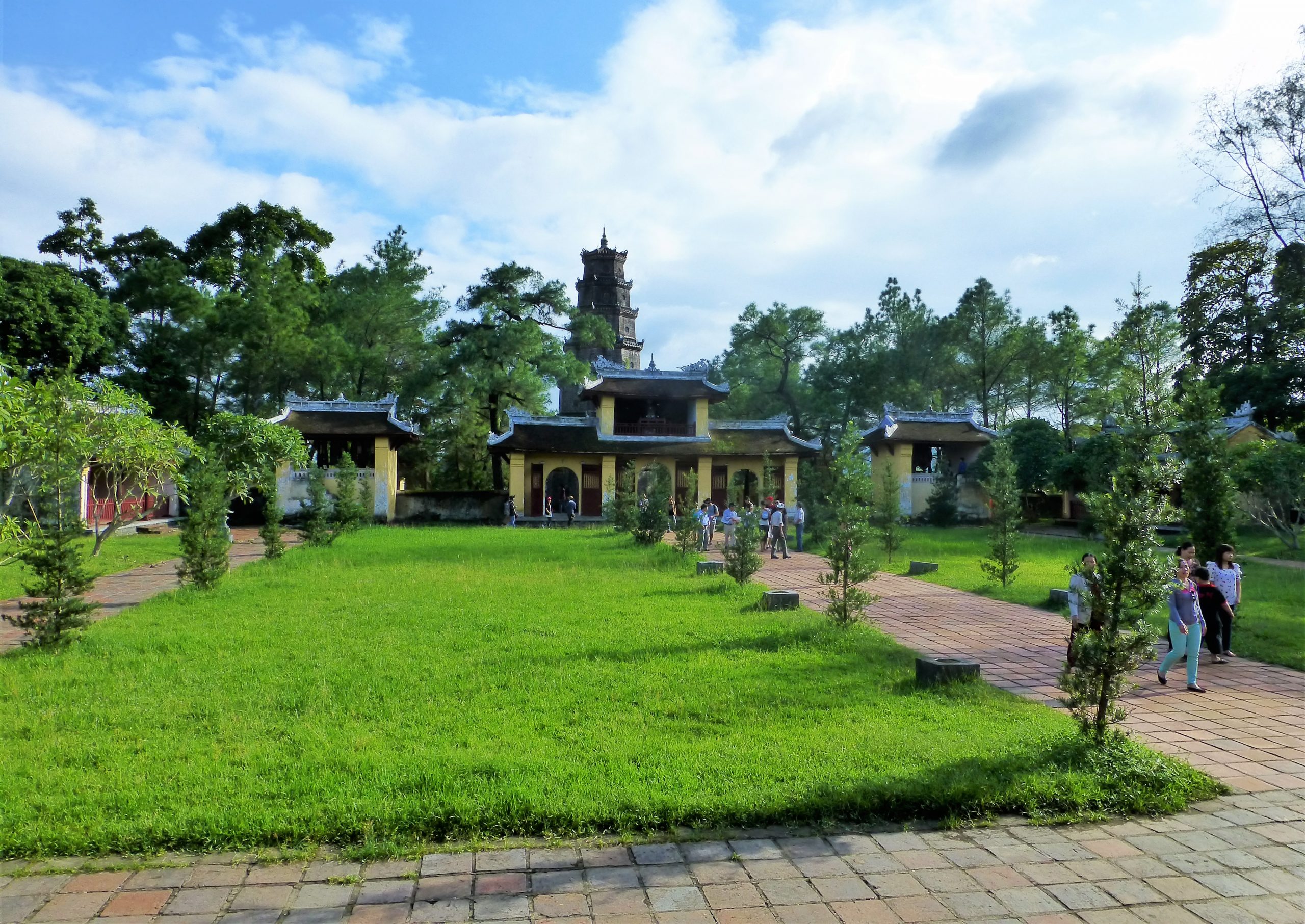
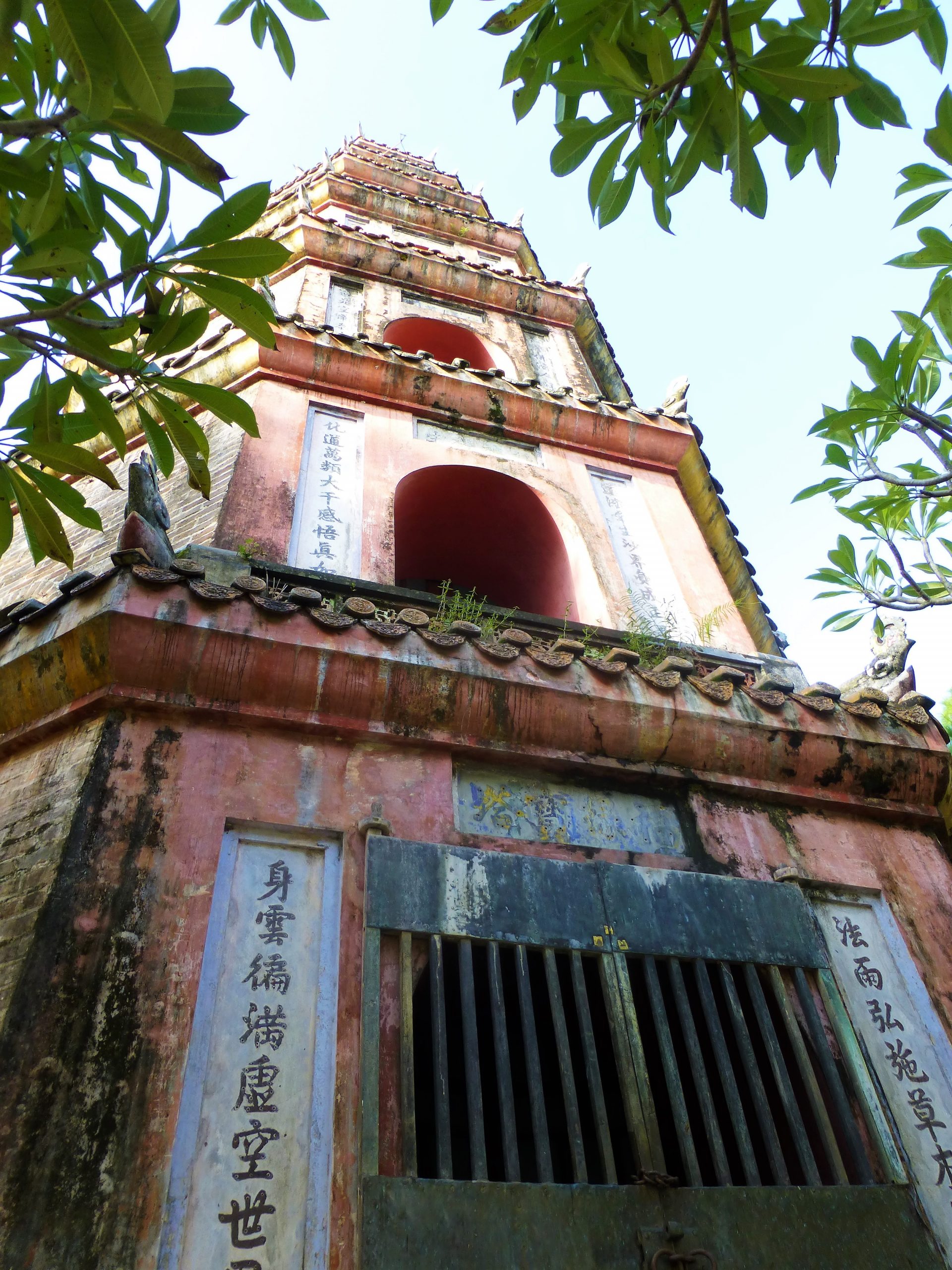
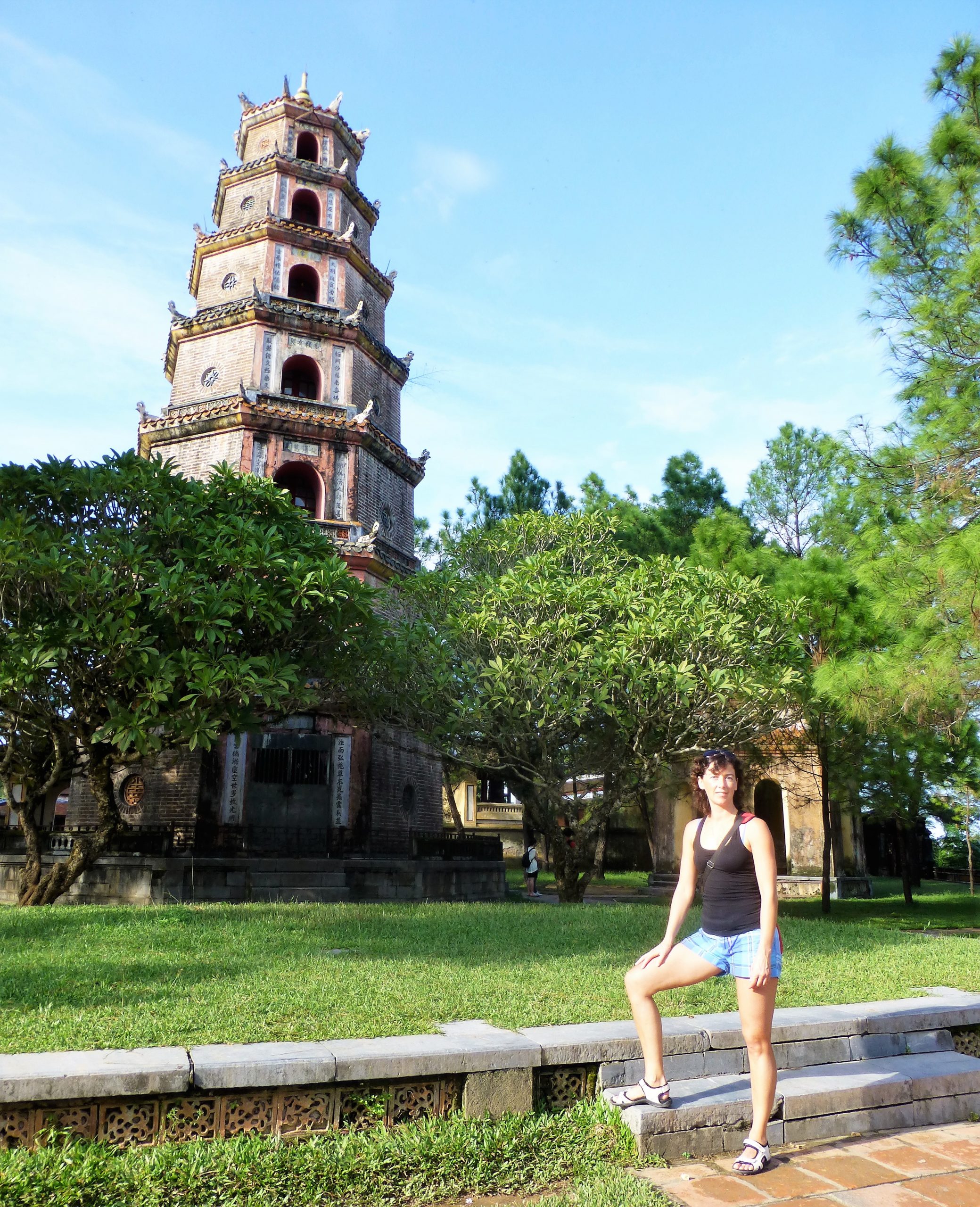
My visit: The sun was shining beautifully during my visit in October 2012!
GPS Thien Mu Pagoda
Where to Stay in Hue
I stayed close to the citadel, which made it easy to bike there. Here are two recommendations:
Accommodation Tips
- Distance: 2 km walk from the citadel
- Excellent location with many restaurants and shops in the area
- Also within walking distance of the citadel
- Many restaurants and shops nearby
- Everything you need during your trip within reach
Practical Tips for Your Visit to Hue
Best Time to Visit
- Dry season: February to April
- Note: October-January can be rainy (as during my visit)
How Long to Stay?
At least 2-3 days to properly explore both the city and the surrounding area.
Would you love to see some more on my Vietnam travel?
- The Famous Cu Chi Tunnels
- Tip: Canyoning in Dalat – Vietnam
- The Fairy Stream and Sand Dunes at Mui Ne
- A Day in Hanoi – Vietnam
- Cookingclass at the Red Bridge – Hoi An
